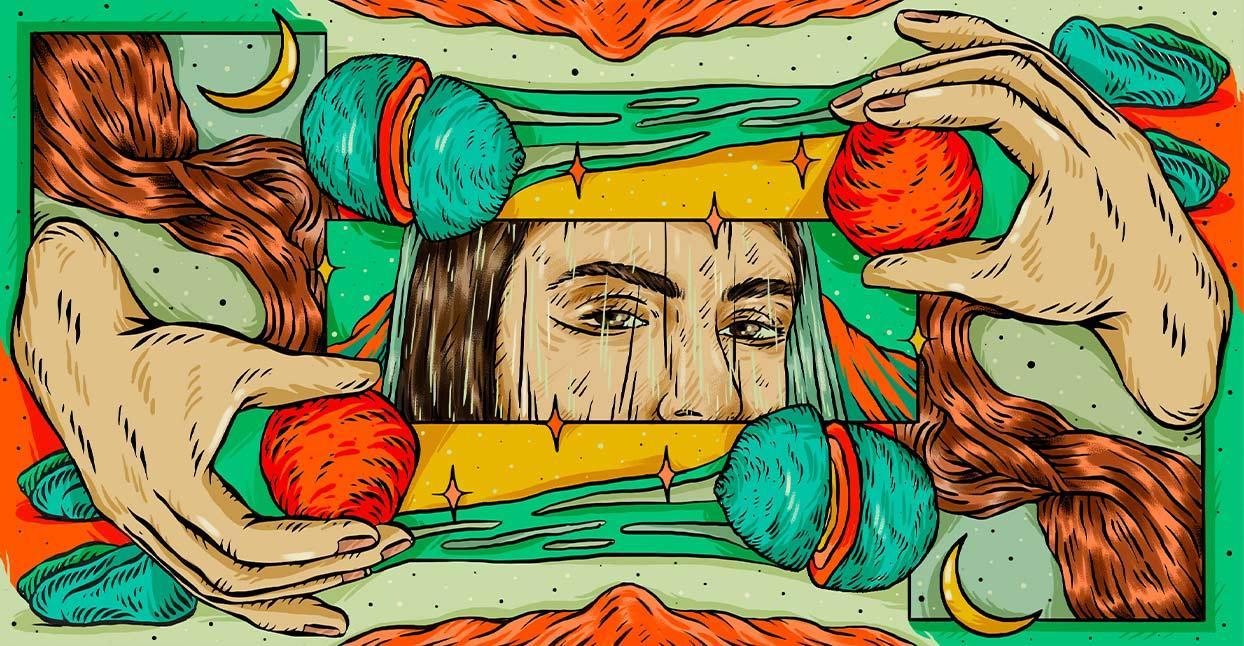
The Latin American pop underground is a massive, celebratory space—a world where popular global genres like rock, folk, electropop, and reggaeton thrive, mingling with traditional music like merengue, cumbia, bossa nova, and nueva canción. Because Latin America is home to a dizzying array of cultures, its music not only contains elements from genres that come from the global North, it’s also firmly rooted in the sounds of the artists’ hometowns, and their experiences as young musicians in a region that is in perpetual motion—and perpetual turmoil.
The artists contained in this list make music that shatters the expectations and stereotypes of what Latin America sounds like today. They’re also creating intricate and beautiful narratives about love, independence, sexuality, race, spirituality, and politics that provide a window into the hearts and souls of the communities they represent. These artists, who hail from the Caribbean, Mexico, and South America, are taking their scenes by storm, and creating music that transcends geographical boundaries.
Papisa


Brazilian artist and producer Rita Oliva has been playing music since she was young. She started on classical piano, then moved to acoustic guitar and drums. Eventually, she started to sing. After graduating university with a degree in marketing, Oliva turned her attention to music, joining the alternative rock band Cabana Café, who were a mainstay of the São Paolo music scene. When her tenure with the band ended, Oliva embarked on a spiritual and physical journey to rediscover herself and the ways in which she could use her voice to process her emotions—and help others do the same. Out of this spiritual work came her project Papisa, which roughly translates to “priestess.”
“I didn’t start with the name Papisa, but I started with the specific rituals to put these songs together, and to create an environment at home where I could be more connected with myself and with nature,” Oliva explains. “That was the concept behind it—it was pragmatic and practical; a search for spiritual meaning for my life, and also for my work. I had been working with music for a long time, and I was really looking for the purpose in that.”
Her debut album, Fenda, is a masterclass in dream pop and psychedelia. Oliva produced the record herself, and plays every instrument on each of its nine tracks. Written in the aftermath of both her grandfather’s passing and the end of a relationship, Fenda is centered on themes of death and rupture. But it’s less an album about grief, and more about finding ways to deal with natural endings. “I really would like to get people into a peaceful state of mind,” Oliva says. “If I’m able to bring some comfort to listeners, to bring some sort of connection with themselves and with the music, it would be really nice to achieve that. I want to be this little drop in an ocean of peace and calm.”
Tomasa del Real
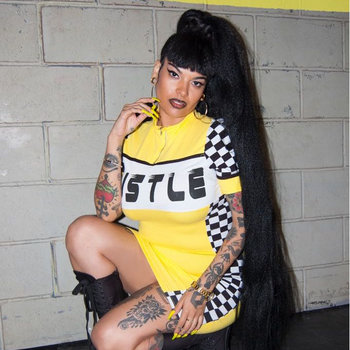

In her short career as a reggaeton singer, Chilean tattoo artist and clothing designer Tomasa del Real has managed to collaborate with genre heavy-hitters like DJ Blass and Maicol Superstar (formerly of the Puerto Rican duo, Maicol y Manuel), and has shattered stereotypes about what women are allowed to sing about in reggaeton. Much like her predecessor, Ivy Queen, Tomasa del Real rhymes explicitly about sexual desire, love, and female empowerment.
Credited as the creator of the genre neoperreo, del Real has pioneered a sound that is as rooted in dembow—the backbone of reggaeton—as it is in Latin trap, US hip-hop, and pop. To listen to her 2019 album, TDR, is to marvel at her incredible skills as an MC, and the cool, hallucinatory rhythms instantly transport you to the bright lights of the dancefloor.
MULA


When they began their newest project, MULA, in 2015, twin sisters Cristabel and Anabel Acevedo, along with electronic music producer Rachel Rojas, began imagining what the music of a futuristic Caribbean generation could sound like. Taking inspiration from the digital cumbia and folktronica movement in Argentina (where Rojas studied electronic music production) and trailblazers like Rita Indiana, the trio began digging into the Dominican Republic’s invaluable treasure trove of traditional music, and ended up creating dance-worthy fusions of bachata, merengue, perico ripiao, and other traditional genres, paired with drum and bass, reggaeton and dembow beats. “Music acts as a magnet that brings everyone together—the dancing, the beats and joy are very contagious,” Rojas explains. “The direction our sound is taking has a lot of that; it’s very dancefloor oriented: heavy bass, soft intricate vocals, poignant drums and our signature Caribbean flavor.”
Across two records—2015’s debut MULA, and 2017’s Aguas—the trio has not only refined their sound to crisp, body-rocking club jams, they’ve also told stories of love, lust, Caribbean nostalgia, and female empowerment that give a new and nuanced perspective of what it’s like to live and grow up in the queer community in the Domincan Republic. “More than stories, we try to show our perspective on those topics—how we perceive the world, and what happens around us,” the trio explains via email. “We believe its important to give visibility to our Black, queer, Caribbean identity. Girls like us have been given very little visibility and it’s time for change.”
A.M.I.G.A.


Hiela Pierrez and Lila Tirando a Violeta are two of the most enigmatic figures in modern-day Uruguayan pop, equally invested in crafting an image grounded ‘00s kitsch as they are committed to exposing the dark and vacuous side of the lives that we lead over the internet. Pierrez is a makeup artist and fashion designer, and Lila Tirando a Violeta is a renowned vaporwave artist; their band A.M.I.G.A borrows its sound and aesthetic from ‘00s Latin American internet culture, pairing it with electropop and a healthy dose of trap. Their debut album, 2018’s a.m.i.g.a.uy, is a hallucinatory trip, the duo’s fiercely sweet voices singing about looking for love on Latin Chat (a Latin American meetup site), obsessing over their internet follower count, and bemoaning online betrayals by cyber loves. “On this first EP, we were interested in talking about the fragility and power of human interaction in the virtual era,” the duo explains in an interview with the online magazine, Piiila. “We’re also making fun of ourselves, looking back on our own dependence on social media.”
On their second album, Enemiga, the duo’s songs have a harder edge, mixing electroclash beats, trap vocals, and reggaeton drumming, to tell more tales of both girl-on-girl betrayal as well as reconciliation. The album also features guest vocals by the likes of Sara Hebe and Uruguayan producer Eros White. Both albums are bewildering listens that demand repeat plays.
Ani Cordero

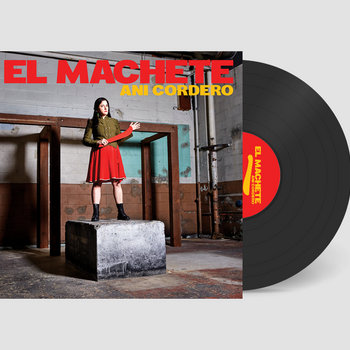

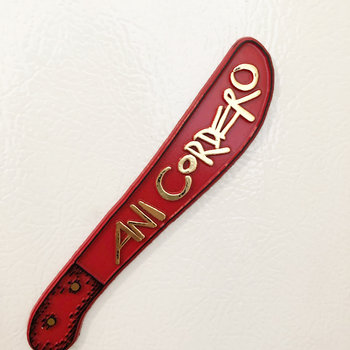
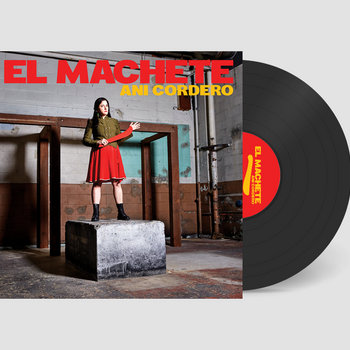

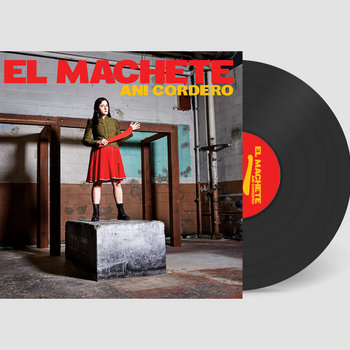

Vinyl LP




Ani Cordero is the embodiment of the warrior—a fiercely independent and political voice in the folk scene, an incredible touring drummer for bands like Os Mutantes, an intense backbeat for Mexican rock band Pistolera, and an activist for the rights of women, immigrants, and the Puerto Rican community in the diaspora. After beginning her solo career in 2014, she’s moved from re-imagining semi-acoustic versions of Latin American nueva canción songs on her first album, Recordar to crafting unabashed anthems of resistance and social justice in her sophomore record, Querido Mundo.
Now, Cordero is shifting back to an edgier, pop-rock sound with her new album, El Machete. Inspired by the realities and struggles of a post-Hurricane Maria Puerto Rico and Donald Trump’s takeover of the US political system, El Machete features Cordero pairing traditional Puerto Rican genres like plena and nueva trova with lyrics calling for female empowerment, justice for the Latinx community, self care among activists, and tales from her summers spent on the island with her family. El Machete is Cordero’s most personal work to date, with the machete itself symbolizing, as she says, “independence, self-reliance, Jíbaro wisdom, and pride in being Puerto Rican.” It is her way of using her platform to help others.
“The personal is political, so in a way, I’ve always been writing political songs,” she explains. “I’m just more dedicated to it now, because it feels like we’re in a historical moment where everyone needs to use their platform to try to counteract the oppression and injustice however they can. But also, I’m interested in giving voice to a variety of emotions with my music, because I believe that it’s healing to hear a song that represents your feelings—even if that feeling is anger sometimes.”
Tuyo


Tuyo is a revelation in Brazilian pop and R&B—a trio of musicians from Curitiba who’ve set out to create a fusion between dense guitars, lo-fi beats, synths, chopped-up vocals, and dream pop harmonies that the band calls “futuristic folk.” Formed by guitarist Jean Machado and vocalists Lilian and Layane Soares, the band has been perfecting their sound since the sisters’ days as contestants on The Voice Brasil. Their debut album, 2018’s Pra Doer, earned them well-deserved praise for their groundbreaking sound—a mixture of reverb-filled harmonies, sweet guitar melodies, hidden bossa nova, and Brazilian folk touches, with lyrics exploring heartbreak, melancholia, and the pains and pleasures of growing up.
Their 2018 debut LP, Pra Curar features similar sonic structures, and cements the trio’s reputation as some of the most poetic songwriters in the Brazilian underground. Pra Curar is, in instances, a bit brighter than its predecessor—a record that immerses listeners in the magical harmonies of the Soares sisters, while also helping, through music, mend the broken-hearted.
MIMA
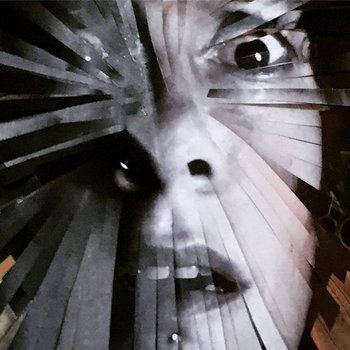
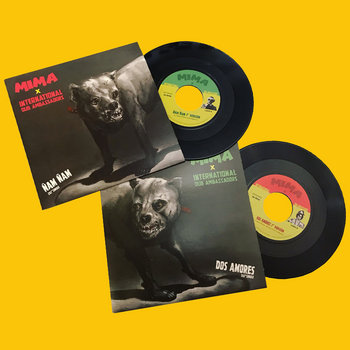


Yarimir Cabán, better known in the Puerto Rican music underground as MIMA, has been involved in music since her early years. Raised in a family of musicians, Cabán honed her chops singing in parrandas during Christmas and during performances at church with her aunts and uncles. As a student at the University of Puerto Rico during the ‘90s, she recorded a session on a four-track cassette recorder with a friend and it spread like wildfire. She was later invited to become part of the famous Puerto Rican reggae band Cultura Profética, and ended up recording at Tuff Gong Studios in Jamaica.
As she tells it, she got kicked out of the band, but wasn’t ready to abandon her career. “That was the trigger for my story as a “solo artist,” she explains from her home in Puerto Rico. “My ego was hurt, so I thought: ‘If these guys can smoke all day and get paid for doing what they love, why can’t I? So revenge was part of my motivation.” After becoming a fixture in the Old San Juan live music circuit, she began slowly building her audience and playing with some of the island’s celebrated musicians. Inspired by the bossa nova greats, she began composing and writing her first pieces of music. “I started writing my own songs, borrowing a Tom Jobim chart book and learning one single song, ‘Corcovado,’” she says. “With the chords of that single song I composed my very first 10 songs which ended up being my first solo album, MIMA, in 2005.”
After the success of MIMA and her 2011 opus, El Pozo, Cabán became a mainstay in the independent music scene. With her mixture of folk, punk rock, reggae, dub, and Brazilian genres, her music touched upon subjects seldom explored in Puerto Rican music, such as sexuality, queer identities, feminism, and the politics of power. Most recently, she’s been touring with the Puerto Rican group, ÌFÉ, and returned to her reggae roots by collaborating with International Dub Ambassadors. One of the standout tracks on that collaboration, “ÑAM-ÑAM,” adapts the words of Afro-Puerto Rican poet, Luis Palés Mator. “I feel this song is a gift to my soul,” Cabán explains. “I also feel intrigued by a Puerto Rico that never had the chance to be, that of the era of Palés-Matos, which preceded the conception of our current form of government. It’s a fragment of a map; of a memory.”
Belafonte Sensacional


Before starting his band Belafonte Sensacional, Mexico City musician Israel Ramírez didn’t think he had it in him to become a singer-songwriter. As he mentions during a short interview from his home in the Iztapalapa neighborhood, he thought all the good songs were already written, and there was nothing left to say. After finding his voice as a songwriter, and being inspired by the rich cultural fabric of Mexico City, he embarked on a journey to find a band of musicians on his same wavelength–who wanted to create genreless music rooted in a mixture between pop, rock, and traditional Mexican boleros, cumbias, and even a little bit of reggaeton. “It’s been a beautiful process of finding myself, and finding lots of others that coincide with my way of thinking, my way of life, our love for the same ideas, the same things– I’ve been very privileged,” Ramírez says. “That’s the story of Belafonte; a dude that was lonely and didn’t know what to do, and then found a new family.”
Ramírez and his band have moved seamlessly from the acoustic folk of their 2014 record, El Gazapo, to pure punk rock with their 2017 EP, Destroy, to psychedelic pop rock with their newest release, Soy Piedra, which seeks to immortalize the stories and sounds of Mexico City.
“I want to tell the story of the common man that lives in the barrio,” Ramírez explains. “How he lives, how he fails, how he gets back up—how he’s winning, even when it looks like he’s losing, and vice versa. I want to tell those stories, and I tell them with the material that I know best: myself. I’m filtering that reality through songs and words. It inspires us, and it inspires a beautiful conversation between the band members, where everybody brings their own identity to the songs.”








